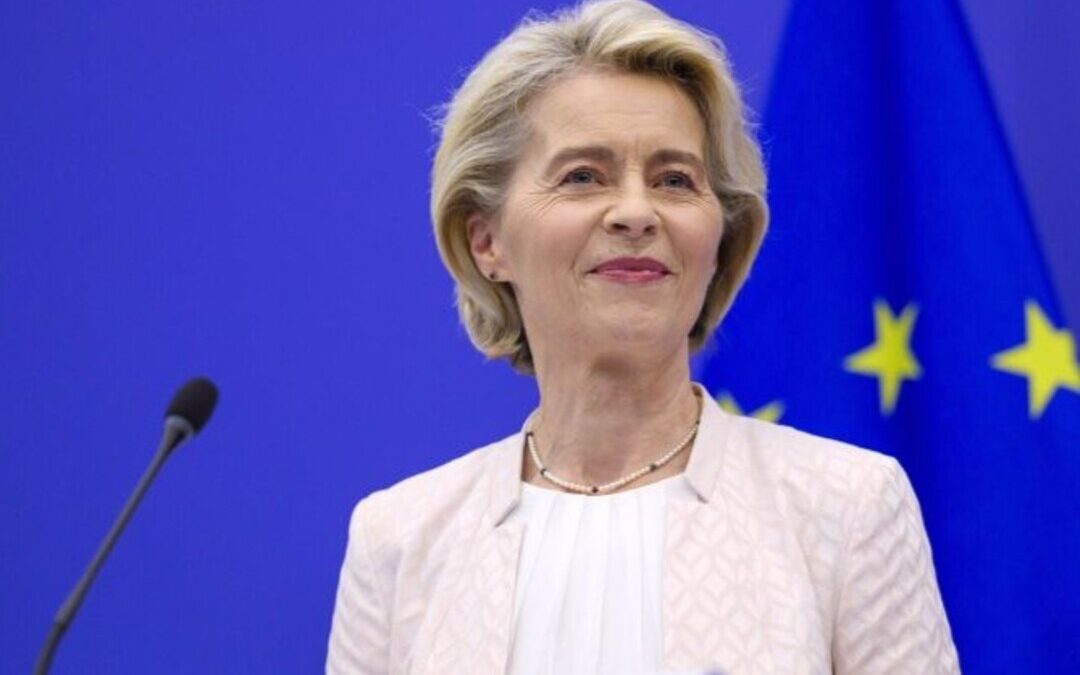EU Proposes 90% Emissions Cut by 2040 in Climate Law Overhaul
EU sets ambitious 2040 emissions goal, aiming to boost green investment, energy security and climate resilience.
The European Commission proposed an amendment to the EU Climate Law on Tuesday, setting a legally binding target to reduce net greenhouse gas emissions by 90 percent from 1990 levels by 2040, advancing the bloc’s long-term commitment to climate neutrality by mid-century.
The updated target, part of Commission President Ursula von der Leyen’s 2024–2029 political guidelines, aims to provide businesses and investors with policy clarity while reinforcing the EU’s competitiveness, energy independence, and resilience to climate change.
“The goal is clear, the journey is pragmatic and realistic,” von der Leyen said, citing growing public pressure and industrial demand for long-term predictability in EU climate policy.
Shift Toward Flexibility and Cost-Efficiency
The new target builds on the EU’s existing 2030 objective of at least a 55 percent reduction in emissions, which the bloc says it is on track to achieve.
The 2040 proposal takes a more flexible approach, introducing mechanisms to accommodate national differences and evolving economic realities.
Key features include a limited use of high-quality international carbon credits starting in 2036, domestic carbon removals under the EU Emissions Trading System, and cross-sectoral flexibilities to allow countries to offset shortfalls in one sector with overperformance in another.
The Commission stressed that fairness, cost-effectiveness and technological neutrality would guide future legislation.
Industrial Competitiveness at Core of Transition
Alongside the proposed climate target, the Commission published a Communication outlining initial steps under its Clean Industrial Deal — an initiative designed to align decarbonization with economic growth.
Recent measures include a new state aid framework to boost clean energy investment, simplification of the Carbon Border Adjustment Mechanism, and a package of tax incentives to accelerate industrial decarbonization.
The Commission also pledged further support for grid infrastructure, Power Purchase Agreements, and the chemicals sector.
Future EU budget proposals and a forthcoming Industrial Decarbonization Bank pilot will further support the clean transition, the Commission said.
Signaling Global Commitment Ahead of COP30
By adopting the 90 percent target, the EU aims to bolster its leadership ahead of the COP30 United Nations climate talks in Brazil this November. The proposal is underpinned by input from the Intergovernmental Panel on Climate Change, the EU’s Scientific Advisory Board, and extensive stakeholder consultations.
The revised target will inform the bloc’s updated Nationally Determined Contribution under the Paris Agreement, which the Commission will finalize with the Council Presidency in the coming months.
Legislative Path Forward
The proposal now moves to the European Parliament and the Council for negotiation and adoption under the ordinary legislative procedure. If approved, it will shape the EU’s post-2030 climate and energy policy framework and act as a benchmark for future initiatives.
The European Climate Law, in force since July 2021, mandates such an intermediate 2040 target. The law commits the EU to reaching net-zero emissions by 2050, with the 2030 and 2040 milestones designed to keep the bloc on course.
The Commission’s May 2025 assessment of National Energy and Climate Plans showed that the EU is collectively closing in on the 2030 target, laying the groundwork for deeper cuts in the following decade.
Nirmal Menon
Related posts

Subscribe
Error: Contact form not found.


